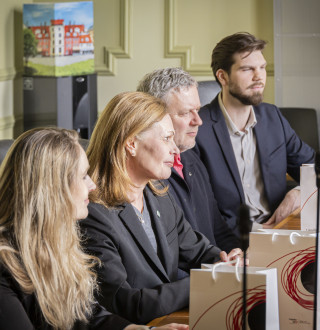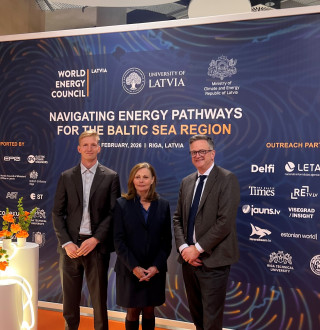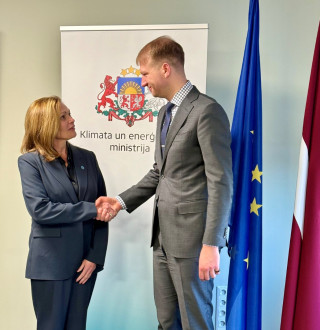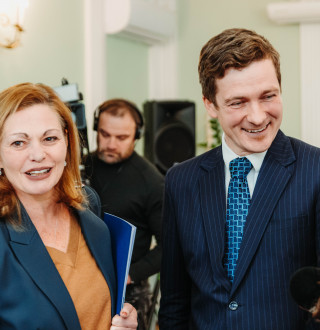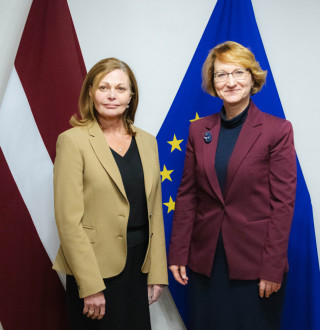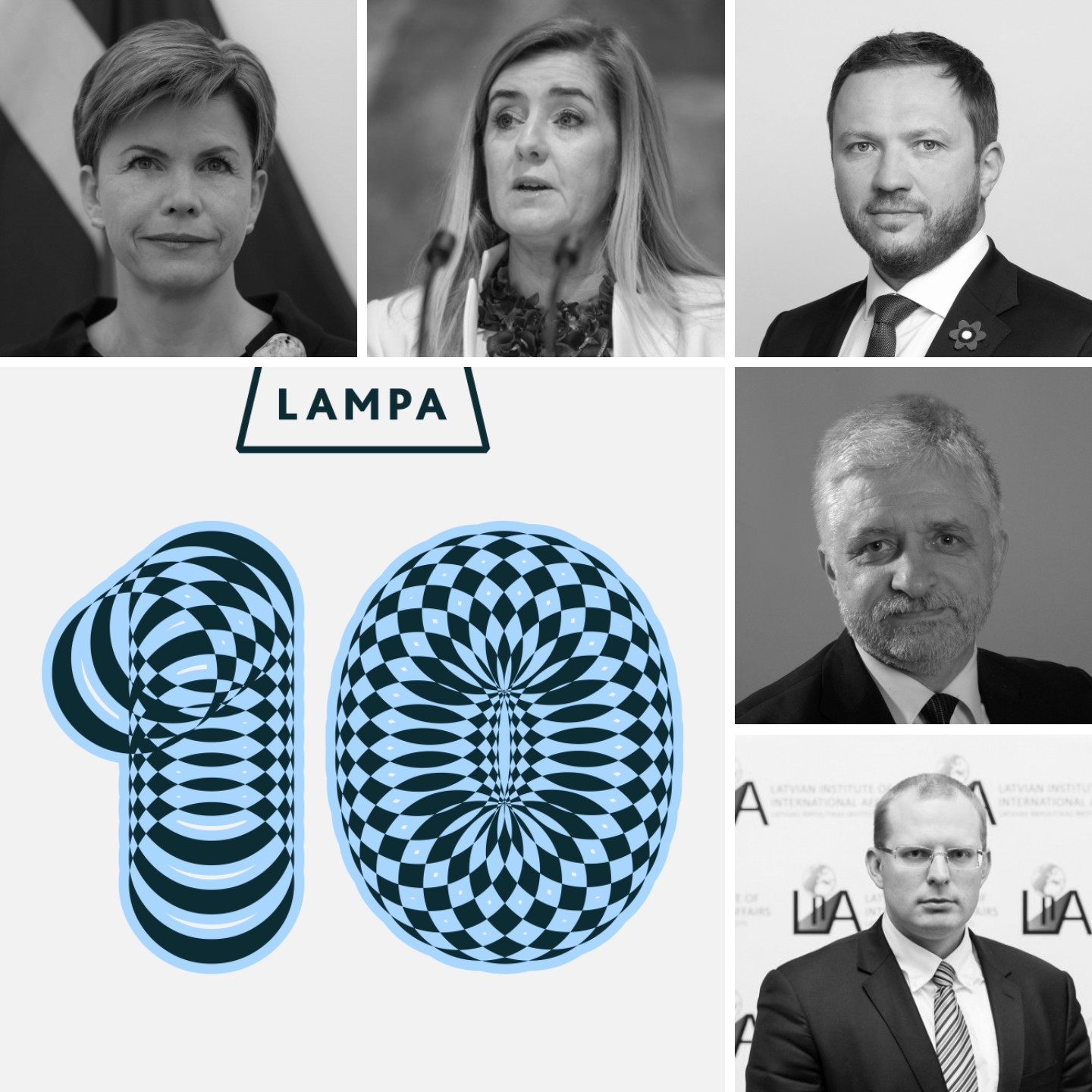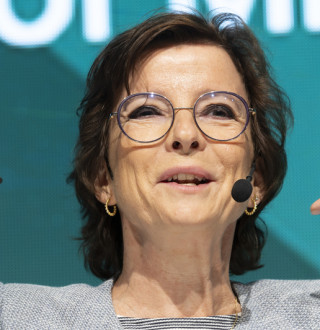The security landscape in the Baltic Sea region has undergone significant shifts in recent years, prompting Finland and Sweden to fundamentally reassess their defense strategies. Their accession to NATO not only marks a historic milestone in the story of the alliance but also shifts the security dynamics in the region. In the event of military conflict, both nations play a crucial role in regional security, leveraging their advanced military capabilities and strategic locations. All the Nordic countries are indispensable partners for Latvia in all aspects of security, including energy, environmental conservation, and economic resilience.
Exchange of knowledge and experience, as well as joint energy infrastructure projects such as integrating renewable energy resources and establishing a sustainable energy network, can reduce dependence on external energy resources beyond the Nordic-Baltic region and enhance regional stability. Strengthening economic ties, forming joint ventures, and executing shared investment projects can also enhance resilience and prosperity in the region. At both societal and individual levels, mutual understanding and solidarity make the country stronger. In support of these goals, the Nordic Council of Ministers' office in Latvia offers financial backing for exchange visits and networking opportunities among cultural professionals, governmental officials, and representatives from non-governmental organizations. The impact of such visits extends beyond the grant recipients themselves; it is a way for Latvia to embrace and adopt democratic values, Nordic way of life, and perspectives that have brought rapid prosperity and enhanced internal security to the Nordics.
The Nordic Council has made regional security one of its top priorities, highlighting security of the Baltic Sea region as a crucial aspect of international cooperation and dialogue with the Baltic Assembly and other partners. Respectively, the President of the Nordic Council is part of this panel discussion.
The panel discussion “United in Security: New Challenges in the Nordic-Baltic Region” will take place on July 5 at 3:30 PM, gathering seasoned experts on international and security matters.
PANELISTS
Baiba Braže, Minister of Foreign Affairs of Latvia Minister of Foreign Affairs
Former NATO Assistant Secretary General for Public Diplomacy. Previously, Baiba Braže worked at the Ministry of Foreign Affairs, starting in 1993. In the diplomatic service, she has held various positions, including Latvian Ambassador to the United Kingdom and the Netherlands, Permanent Representative to the Organization for the Prohibition of Chemical Weapons, Director of Security Policy and International Organizations, Director of Communications, and Director of the 1st Political Department. Baiba Braže has also served as an Advisor to the Prime Minister on Foreign Policy. She holds Master’s degrees in Law and in Communication Science from the University of Latvia.
Bryndís Haraldsdóttir, President of the Nordic Council Bryndís
Member of the Icelandic Parliament and head of the Icelandic delegation to the Nordic Council. Since 2016, she has been a member of the Icelandic Parliament for the Southwest constituency (Independence Party). She has been Chair of the Conference of the Organization for Security and Cooperation in Europe.
Margus Tsahkna, Minister of Foreign Affairs of Estonia Minister of Foreign Affairs
Chairman of the political party Eesti200. He has been a member of the Tartu City Council, a member of the Estonian Parliament, Minister of Social Protection of Estonia, and Minister of Defense. He studied at the Faculty of Theology and Religious Studies at the University of Tartu and the Faculty of Law at the University of Toronto (specializing in international law).
Jānis Vucāns, Vice President of the Baltic Assembly, Member of the 14th Saeima
Chairman of the Mandates, Ethics and Submissions Committee and the Foreign Affairs Committee's Baltic Affairs Subcommittee. Since 2014, he has chaired Latvia’s permanent delegation to the Baltic Assembly and been a member of its presidency, also serving as President of the Baltic Sea Parliamentary Conference. From 2000 to 2010, he was Rector of Ventspils University College.
MODERATOR
Kārlis Bukovskis, Director of the Latvian Institute of International Affairs, Associate Professor at Rīga Stradiņš University Faculty of European Studies
Author of nearly a hundred analytical and scientific articles and editor of several scientific books. In 2021, he was a visiting fellow at Johns Hopkins University in the United States under the Fulbright grant. From 2017 to 2021, he was an associate researcher at the European Council on Foreign Relations (ECFR). He studied at the University of Trier in Germany, obtained master's degrees from the University of Latvia and the University of Helsinki, and a doctoral degree (Dr. sc. pol.) in international politics from Rīga Stradiņš University. He is one of the founders and leaders of the radio show “Diplomātiskās pusdienas” on Latvian Radio 1.
DISCUSSION DETAILS
Time: July 5 at 3:30 PM
Location: On-site at the stage “Ziemeļsala” (tent No. 49) or online on Facebook or website of the “Lampa” festival.
Language: English. Translation into Latvian will be provided.
The full programme of “Ziemeļsala” is available here.
